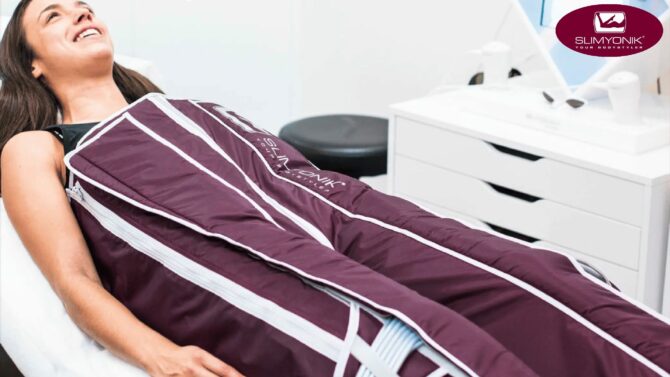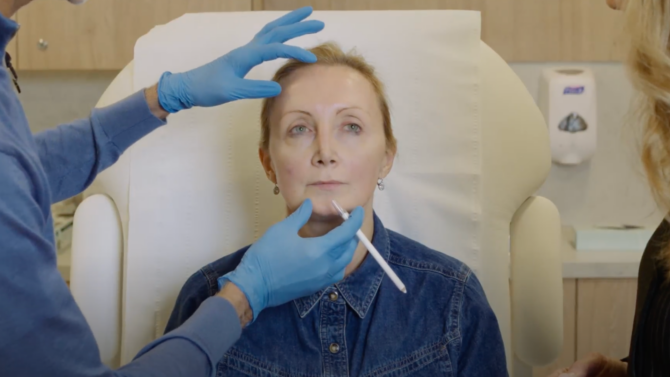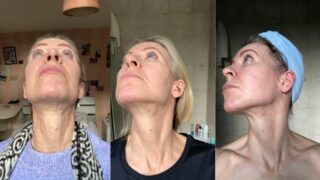If there’s one type of tweakment that has become madly popular in the past few years, it’s the glow-giving, skin-conditioning, ‘injectable moisturiser’ treatments like Profhilo.
We love them because they make the skin – on our faces, necks, hands, chests, even knees – look miles better – less crepey, plumper and fresher, and maybe a bit tighter – without changing our facial proportions or expressions one bit.
All the products in this category, from the original Restylane Skinboosters, via Volite (Juvederm) to Fillmed’s are based on a fluid form of hyaluronic acid. Some have additional ingredients to spice up the mix – there’s glycerol in Belotero’s Revive, and amino acids in Teoxane’s Redensity 1 and in Sunekos. But polynucleotides are different.
What are polynucelotides?
‘They’re biostimulators,’ says Professor Bob Khanna, who has been working with different types of polynucleotides for a few years, ‘which means they kick-start regeneration in the skin.’ Isn’t that what all the HA-based skinboosters do? ‘Yes, but rather than just providing hydration, polynucleotides are more like food or medicine for the cells, to make them produce collagen and elastin in a more meaningful way, and they also improve the extra cellular matrix [the layer of the skin in which the fibroblasts live] and they’re anti-inflammatory, too.’
What are polynucelotides made from?
They’re biopolymers – stretchy molecules made from fragments of fish DNA extracted from salmon or trout sperm which closely resemble human DNA.
What if I’m allergic to fish?
Then these are not for you. Stick with hyaluronic-acid-based injectable moisturisers.
How do polynucleotides work in the skin?
‘They target the fibroblasts and promote hydration of the skin, and collagen synthesis,’ says Professor Syed Haq, lecturing on a new polynucleotide product at a recent aesthetic conference, ‘and they also increase the number of fibroblasts.’ At the same time, they scavenge up free radicals [unstable molecules which accelerate ageing processes in the skin] and help build up the extra-cellular matrix.
What are polynucleotides good for?
All that collagen-boosting, extra hydration and elasticity means you can think of polynucleotides as a super-charged injectable moisture treatment. ‘They can be a preventative treatment for younger skin, or a recovery treatment for ageing skin,’ advises Professor Haq.
Prof Khanna likes to use polynucleotides to counteract dark circles under the eyes and to strengthen the thin delicate skin around the mouth. ‘The products are injected very superficially, and the procedures are incredibly quick and painless,’ he says, and he often uses Pluryal Silk polynucleotides in combination with conventional fillers all over the face.
Dr Sarah Tonks has been showcasing Nucleofill, another polynucleotide, at The Lovely Clinic for a couple of years, and likes it for use around the eyes, particularly for patients who aren’t suitable for tear trough filler, or who might have a tendency to go puffy if treated with a hyaluronic-acid based products.
What can you expect to see after polynucleotide injections?
In a nutshell, reduced wrinkling and crepiness and an improvement in skin tone and hydration. PhilArt, the product that Professor Haq is working with, is good for bringing down inflammation in the skin, which can reduce the redness of rosacea for months at a time. They’re also useful for improving skin condition ahead of energy-based treatments like laser or ultrasound.
What’s PDRN? Are they polynucleotides, too?
Polydeoxyribonucleotides (PDRN) are a sub-type of polynucleotides (PN) though they both have healing and anti-ageing effects.
How much do polynucleotide injections cost?
Much the same as other injectable moisturiser treatments, so between £350 and £450 per round of treatment, depending on how big an area you’re having treated, and where the clinic you’re visiting is located.
How many treatments do I need?
Three or four sessions of treatment, two or three weeks apart.
Anyone who shouldn’t have treatment?
People with: circulatory disorders, ongoing dermatitis, epilepsy, diabetes, active herpes, autoimmune disease. Also not appropriate for pregnancy or breastfeeding.
The Tweakments Guide Takeaway
Polynucleotids are like injectable moisture treatments with extra powers, delivering more in the way of collagen- and elastin-boosting, and improved hydration. They’re anti-inflammatory, too, and are particularly good for treating dark circles around the eyes.
Join Our Mailing List
This is the best way to stay in the loop with our latest news and updates, including industry titbits and tailored offers.
Related Stories

Tweakments
An Aesthetic Doctor’s First-Hand Experience Of Having A Hair Transplant
If you are worried about thinning hair or a receding hairline, you are far from alone. Losing your hair is a...

Body contouring
Would You Try This Inflatable Suit To Tone Your Body?
We’ve always been told that lying back and relaxing won’t do a thing to transform our bodies...

Concerns
The Tweakment Ladder: How To Take Your First Steps In Tweaks
Given the huge number of tweakments available, it’s increasingly hard to work out where you should...

Tweakments
Less Is More – How To ‘Press Pause’ On Ageing With Natural-Looking Filler
Can we really ‘press pause on ageing’ using dermal filler? Alice visited globally-renowned...







 The Tweakments Chatbot
The Tweakments Chatbot